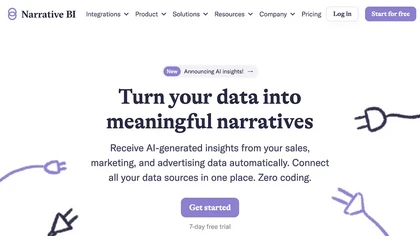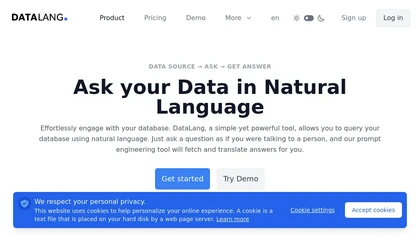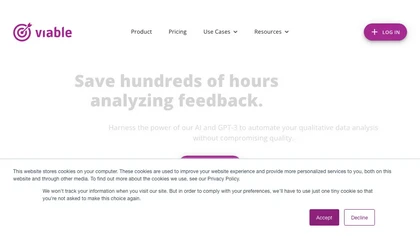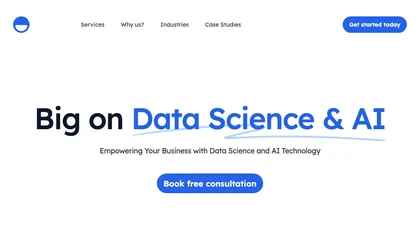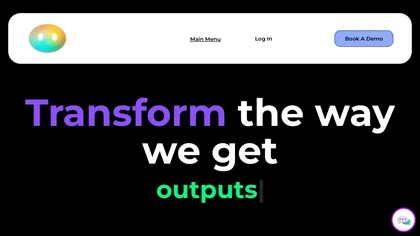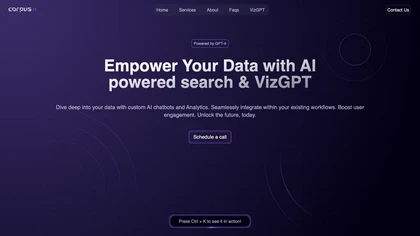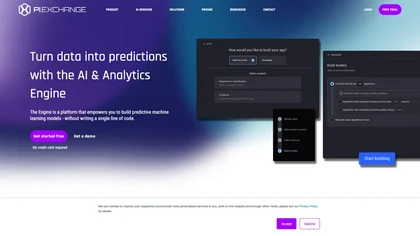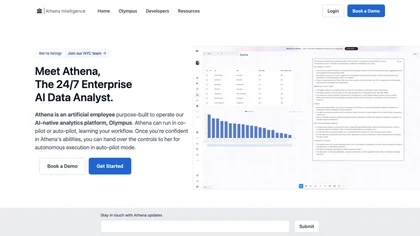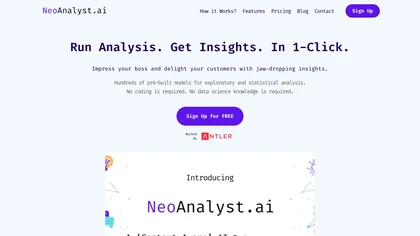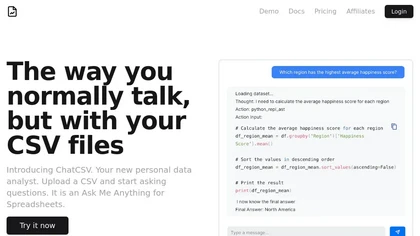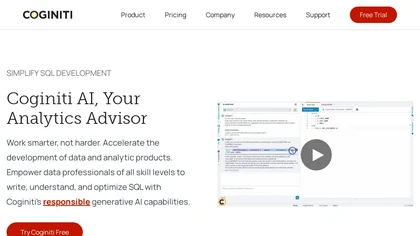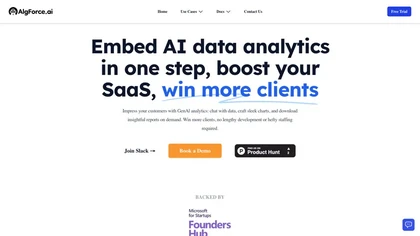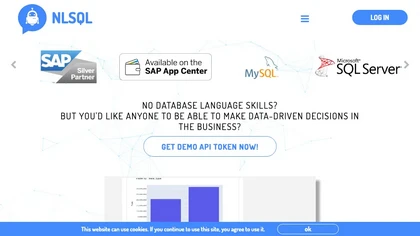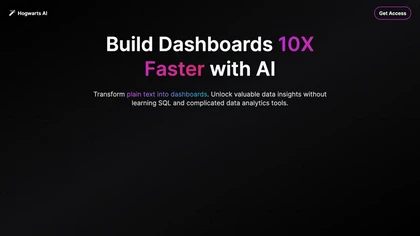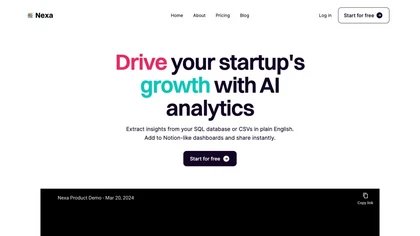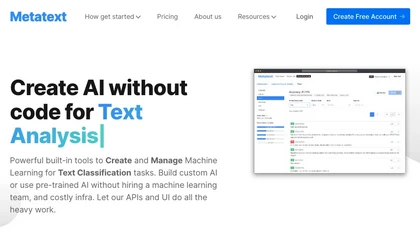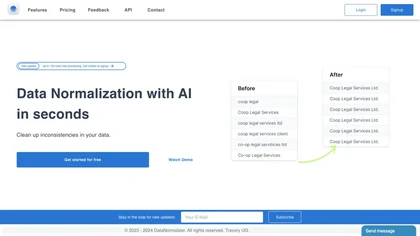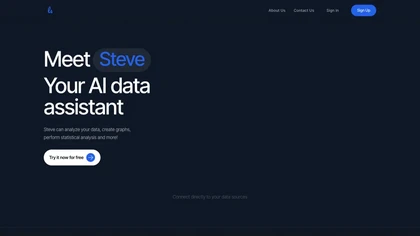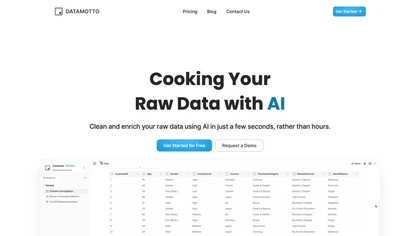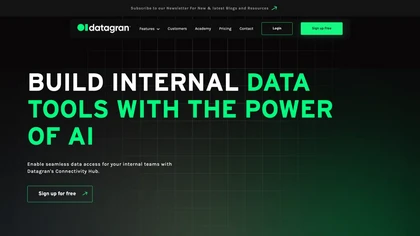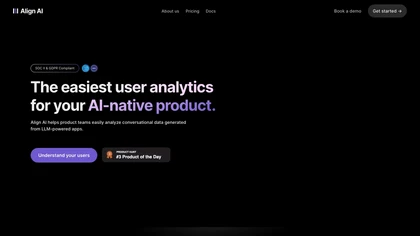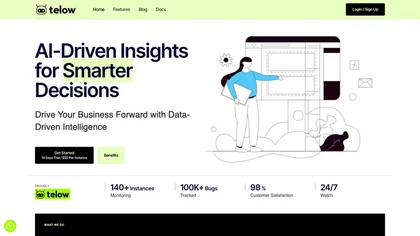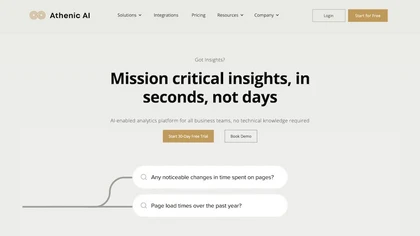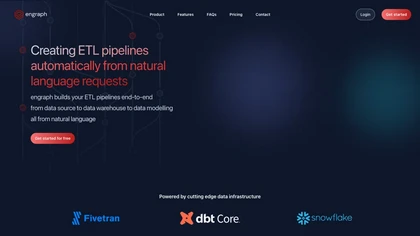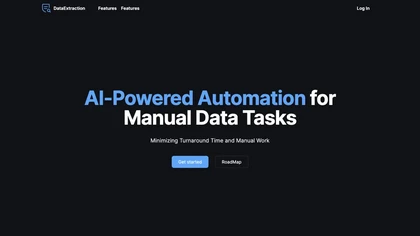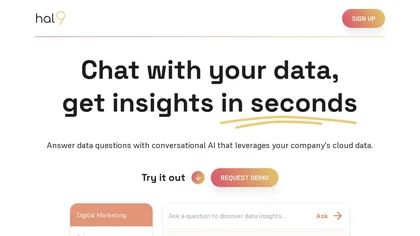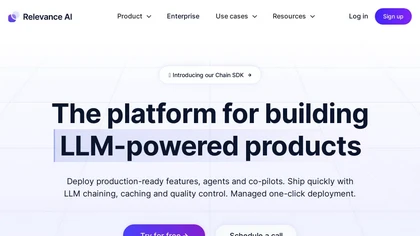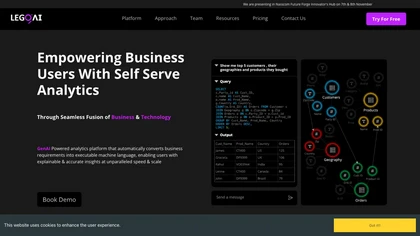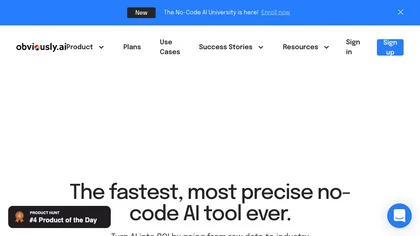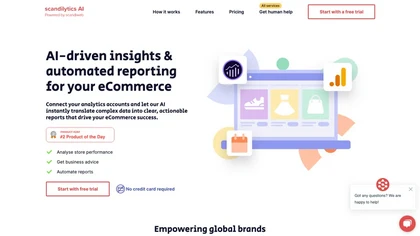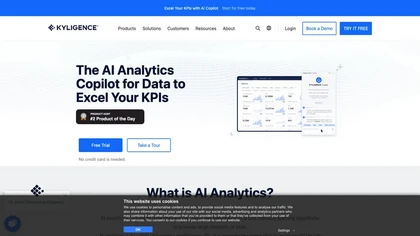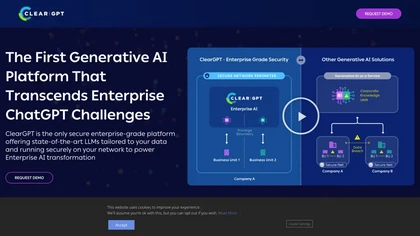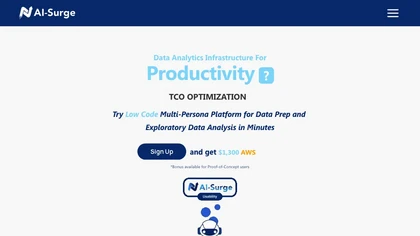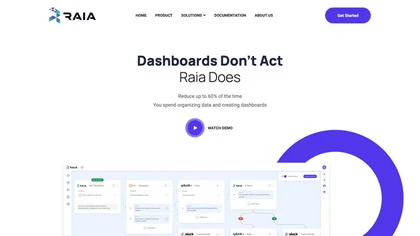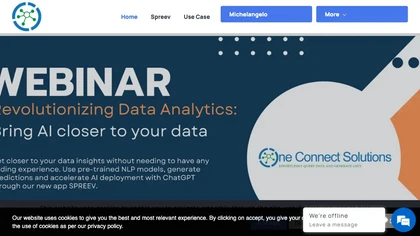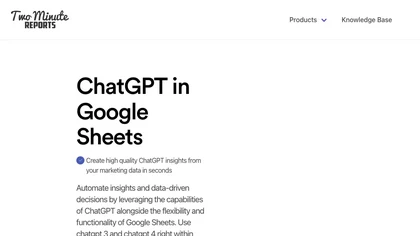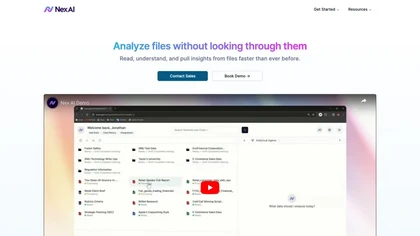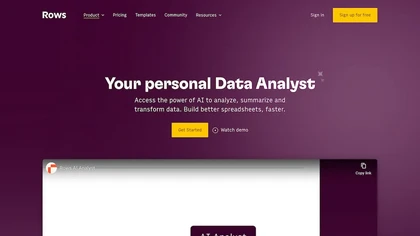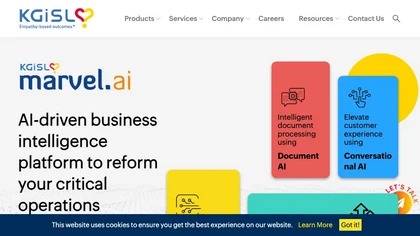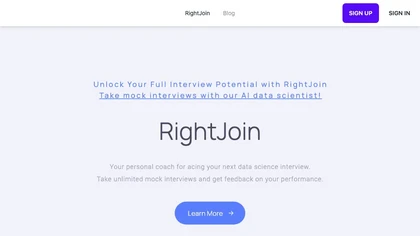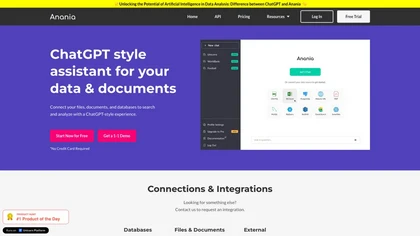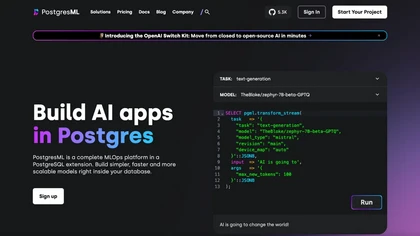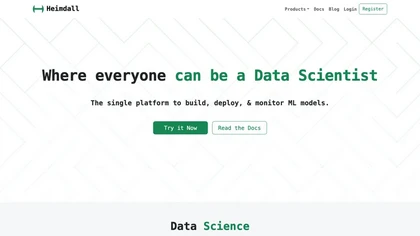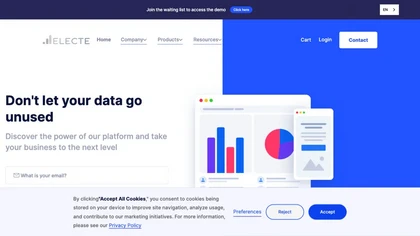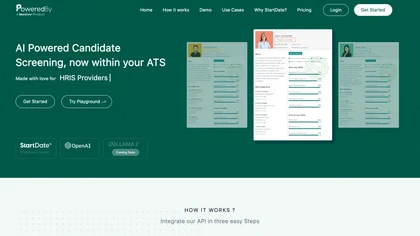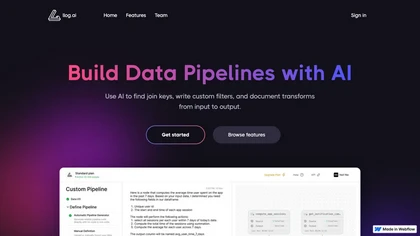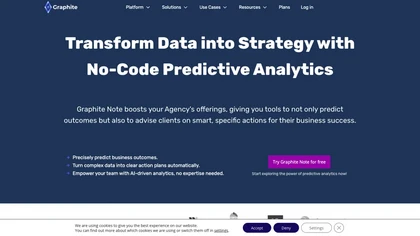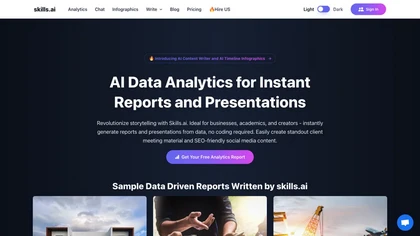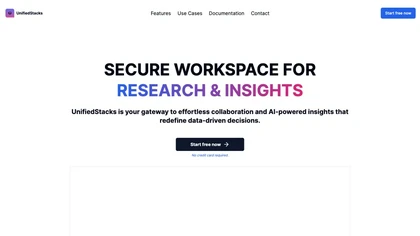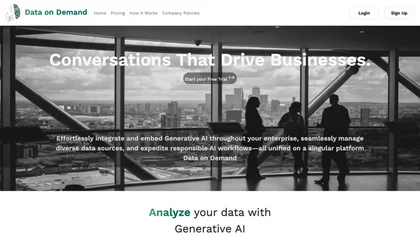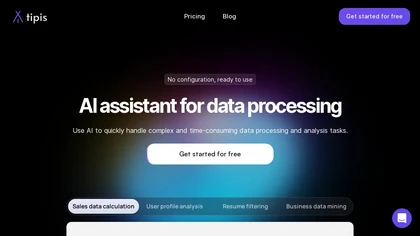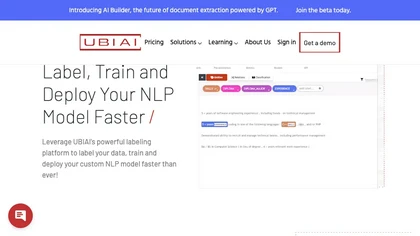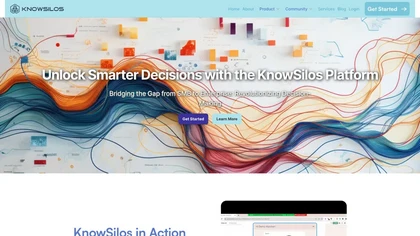AI use cases for Data Warehousing
Generative AI can be applied in various applications for data warehousing. Here are some examples to explore below for inspiration with AI tools to get you started with using AI in data warehousing.
🛠️ 70 AI tools for Data Warehousing
Explore a dynamic list of some of the most popular tools to get you started with various AI use cases and applications for Data Warehousing to streamline your workflows and productivity today.
Narrative BI features
- All the metrics under one roof
- Natural language generation
- Anomaly detection
- Scheduled reports
- AI driven insights
- Slack chatbot
- Multiple data channels integrations
DataLang features
- Query databases using natural language
- Fetch and translate answers
- Handle a wide range of questions
- Provide insights on metrics
- Integrate with other tools
viable features
- Automated qualitative data analysis
- Customer feedback understanding
- Nlp technology
- Feedback analysis
Think AI Agency features
- Natural language processing
- Computer vision
- Recommendation systems
- Predictive analytics
Maya AI features
- Data analysis
- Ai-powered natural language processing
- Faster and more accurate results
- Finding answers within data
Corpus-X features
- Powered by GPT-4 technology
- Data visualization capabilities
- Advanced search query functionalities
- Supports various data integrations
- Engagement through dedicated chatbots
Soffos AI features
- Nlp
- Pre-built apis
- Advanced nlp toolkit
- Extracting valuable insights from complex data sets
- Making informed, data-driven decisions
🔥
Create your account, save tools & get personal recommendations
Receive a weekly digest of our handpicked top tools.
Unsubscribe anytime
Pi Exchange features
- End-to-end machine-learning tool
- Eliminates the need for coding
- Smart data preparation
- Model development
- Deployment functionalities
Athena Intelligence features
- Artificial employee functionality
- Autonomous data exploration, analysis, and action
- User-friendly interface for enterprise analytics
- Collaborative platform for up to 100 concurrent users
- Advanced capabilities like natural language interfaces and causal AI models
NeoAnalyst features
- Pre-built models
- Instant analysis queries
- Predictive analytics
- Visualize results through charts
- Context-aware analysis
ChatCSV
5ChatCSV features
- Import-csv
- Upload-file
- Generate-questions
- Visualize-data
- Analyze-campaigns
Coginiti features
- Generating sql using natural language prompts
- Exploring, managing, and analyzing data in a collaborative data workspace
- Optimizing existing sql queries
- Providing detailed explanations and solutions to errors
- Explaining query execution plans for better optimization
- Supporting deep database and object store integration
- Focusing on enhancing query performance to decrease compute costs
AlgForce Copilot features
- Natural Language Querying
- Domain Expert AI Language Models
- Data Visualization Collaboration Tools
- Whiteboard Solution for Team Collaboration
- Privacy Measures and Database Compatibility
NLSQL features
- Searching
- Analyzing
- Real-time decision making
- Integration with corporate databases and messaging systems
- Efficient and accurate clinical decision making
PredictEasy features
- Data preprocessing
- Data visualization
- Model building
- Automated machine learning
- Auditing data
HogwartsAI features
- Transform plain text into visual representations
- Query patterns trained on diverse data sources
- Create visually compelling charts without SQL knowledge
- Generate shareable charts for product documents and executive reviews
- Intelligent chart recommendations for dashboard building
Nexa features
- Extract insights from SQL databases and CSVs in plain English
- Create Notion-like dashboards for sharing and connecting data from various sources
- Seamless integration with popular tools like Slack for querying data and getting instant insights through messages
- App integrations and developer API to enhance productivity with various SaaS solutions
- Optimize data analysis process
Mixpanel Spark features
- Natural language processing for answering questions
- Access to CEO insights for generating ideas
- Chat with AI for efficient report generation
- Wide range of question types supported
- Built on OpenAI for robust security practices
Metatext features
- No-code platform
- Nlp products
- Annotate
- Curate
- Build
- Deploy
- Maintain
- Automate complex workflows
- Text annotation
- Training
- Iteratively curate
Data Normalizer features
- Normalize Data in Excel
- Normalize Data in Python
- Normalize Data in SQL
- Normalize Data in Login
- Fuzzy Match Levenshtein distance Model Fuzzy Search
Bara Platform features
- Advanced artificial intelligence tool
- In-depth analytics and predictive insights
- Cutting-edge algorithms and machine learning capabilities
- Intuitive dashboard for visualizing complex data sets
- Actionable insights for strategic decision-making
Latentspace features
- Data analysis
- Graph creation
- Statistical analysis
- Natural language processing for querying
- Direct connection to data sources
DataMotto features
- Data cleaning and enrichment using advanced algorithms
- Data validation processes
- Data gap filling for comprehensive dataset
- Data consistency maintenance with formatting standardization
- Data privacy and security prioritization
Datagran features
- Connect and extract data from various sources using EL technology
- AI bots for data-related queries
- Create custom alerts with logic
- Develop apps without coding
- Transform data models and visualize data
impaction.ai features
- Conversational data analysis
- Integration with data sources like AWS S3, GCP BigQuery
- Real-time data ingestion
- Natural language processing capabilities
- Conversation monitoring and tracking
Patterns features
- Instant AI analytics in 60 seconds
- Natural language interface for accessibility
- Adaptive learning capabilities for enhancing user experience
- Secure IP infrastructure for data safety and scalability
- API integration for developers to seamlessly integrate into applications
Telow features
- AI-powered data analysis
- Integration with GA4
- Data intelligence platforms
- Precision in tackling intricate challenges through data intelligence
- Optimized for data-driven analysis
Columns features
- Create engaging data stories
- Insights from prompts and queries
- Customize graph settings
- Create interactive visualizations
- Collaborate within community
Athenic AI features
- Natural language query-based analysis
- SOC 2 Type II certified data security
- Product and marketing analytics
- ERP reporting
- WooCommerce analytics
- Direct integrations with DB, Files, WooCommerce, Data warehouses
Engraph features
- Automates ETL pipeline creation
- Generates reusable dbt models
- Offers seamless integrations with 340+ data tools
- Collaboration features with access controls
- Upcoming pipeline monitoring for real-time data quality checks
Data Extraction features
- Automates manual data tasks
- Customizable extraction rules
- Efficient data extraction process
- Utilizes natural language processing
- Incorporates machine learning technologies
Hal9
5Hal9 features
- Data-driven decision making
- Facilitates communication with cloud data
- Integration with existing systems
- Empowers business users to access insights independently
- Real-time data processing and analysis
Relevance AI features
- Ai chain creation
- Managed services deployment
- Custom ai application development
- Pre-trained ai/ml workflows
- Data access dashboard
OntoCraft features
- Self-serve analytics generation
- Translation of business requirements into executable machine language
- AI-augmented insights generation
- Natural language interface
- Modern data and analytics ecosystem
AIDE by Weco features
- Streamlining the process of designing and optimizing machine learning pipelines
- Providing advanced AI assistance for transforming data into actionable intelligence
- Interacting with users through natural language for expert-guided instructions
- Autonomously crafting, evaluating, and refining solutions iteratively
- Generating meticulously crafted code and comprehensive research reports
Obviously AI features
- Build-predictive-models
- No-code
- Minutes
- Tabular-data
- Date-time
SumoPPM features
- Create visually appealing charts and comprehensive dashboards
- Leverage natural language processing (NLP) for insights and predictions
- Seamless integration of blockchain technology and artificial intelligence
- Interactive project data analysis using natural language
- Features multi-company management and proprietary machine learning technology
Data Analyst AI features
- Data Analyst AI
- Automated reporting
- Tailored marketing strategies
- Streamlined marketing efforts
- Secure data processing
Kyligence Copilot features
- Automated insights generation
- Rapid identification of data changes
- Natural language query capabilities
- Anomaly detection
- Unified data sources
ClearGPT AI features
- Tailored for enterprise environments
- Addresses security, performance, cost, and data governance limitations
- Human reinforcement feedback loop for continuous learning
- Allows users to explore, generate, analyze, and act upon predictive business information efficiently
- Enables smarter decision-making and faster innovation within enterprises
WolongAI features
- Automated data tasks
- Machine learning algorithms for pattern detection
- Data collection, cleaning, and analysis automation
- Personalized support for task streamlining
- Scheduling meetings and managing emails automation
AI Surge Cloud features
- Data analysis
- Faster delivery
- Existing team
- Agility
- Flexibility
Raia features
- Reduces time spent organizing data and creating dashboards by up to 60%
- Actively interacts with users to provide tailored insights and execute tasks based on data needs
- Transforms data into actionable insights and automates crucial tasks
- Natural language processing capabilities for non-technical team members to engage with data insights
- Simplifies data analysis, communication, and report generation
Chart features
- Ml inference
- Cloud based
- Own
- Lightning
SPREEV features
- Data integration
- Machine learning
- Semantic analytics
- Code/low-code automation
- Decision making
ChatGPT in Google Sheets features
- 1
- 2
- 3
- 4
- 5
Nex AI features
- Data analysis enhancement
- Interpreting and extracting insights from various file formats
- Module-based data processing
- Interacting to generate, organize, and visualize data
- Algorithm-driven approach for accuracy and trust
Xero features
- Explore and analyze data
- Create custom visuals
- Generate insights
- Data transformation
- Machine learning training and testing
Rows
5Rows features
- Importing data
- Analyzing data with openai integration and ai wizard
- Creating slick reports and charts as webpages or embeds
- Classifying and tagging text
- Sentiment analysis
- Support ticket transformation
- Feedback surveys
- Product review insights
- Generating keyword ideas
- Themes
- Blog post titles
- Outlines
Appen features
- Flexible range of solutions for AI journey support
- Data annotation services for machine learning products
- Pre-labeled datasets for model training
- Customizable data annotation options
- Promotes human feedback for generative AI models
MarvelAI
4.6MarvelAI features
- Comprehensive data analysis
- Informed decision-making
- Superior customer experience
- 67% reduction in operational costs
- 100% data privacy
Genius Sheets features
- Generate reports
- Answer questions
- Query data from various sources
- Analyze live data
- Provide instant responses
RightJoin features
- Mock interviews
- Tailored to specific job postings and topics
- Unlimited practice and feedback
- Goal setting and storytelling skill improvement
- Community support
Anania AI features
- Text and SQL query processing
- Data visualization with interactive charts
- Ability to connect files, documents, and databases
- Integration options for OpenAI
- Analysis of structured and unstructured data
PostgresML features
- Seamless integration with PostgreSQL databases
- Building, training, and deploying ML models directly within the database
- Leveraging various regression algorithms for tasks like fraud detection and time series forecasting
- Support for 50+ algorithms
- Integration with popular ML libraries
Heimdall ML features
- Building, deploying, and monitoring machine learning models
- Creating custom classification, regression, and ML models
- Developing product recommendation systems and custom forecasters
- Constructing natural language processing pipelines for sentiment analysis and term importance
- Image processing with texture and gradient analysis, and audio data processing with sound wave spectral analysis
Electe features
- Advanced analytics with an intuitive interface
- Data visualization through intuitive charts and customizable dashboards
- Generative AI for custom note generation based on customer order status
- Competitor analysis to monitor and compare performance for growth opportunities
- Data extraction, classification, and interpretation using machine learning
PoweredBy features
- Integration with ATS and HRIS providers
- API key generation for screening requests
- Utilizes proprietary model for job analysis
- Includes NLP and computer vision applications
- Proficiency in machine learning frameworks
Llog features
- Use AI to find join keys, write custom filters, and document transforms
- Merge data from siloed sources with AI
- Out of the box data lineage documentation
- Performance metrics and demand-based workload scaling
- Programmatically generate repetitive pipeline code with AI
Graphite Note features
- Predict outcomes
- Recommend smart actions
- Analyze customer behavior patterns
- Personalize marketing strategies
- Optimize inventory
Skills.ai features
- Instant report and presentation generation without coding
- Creation of standout client meeting materials and social media content
- Complex analysis and stunning visualizations
- Advanced AI capabilities for uncovering crucial insights
- AI Data Chat feature for 24/7 interaction with AI
UnifiedStacks features
- Gateway feature
- Conversational Data Analysis
- Document Intelligence
- Image Intelligence
- AI companion feature
Donovan features
- Powerful generative AI models
- Data analysis (structured and unstructured)
- Enhances existing systems
- Streamlines processes
Data on Demand features
- Seamless integration of generative AI throughout enterprises
- Management of diverse data sources
- Expedited responsible AI workflows
- Efficient extraction and analysis of relevant data
- Visualization of complex datasets
Tipis AI features
- analyze multiple file types
- generate various charts
- integrate with databases
- collaborate with team members
- permission management
UBIAI features
- Text labeling
- Document annotation
- Multi-language support
- Object detection
- Model-assisted labeling
Datayaki features
- Data analysis
- Plain english questions
- Explainable ai
- Secure collaboration
- Connect to popular databases
YC Application Optimizer features
- Data integration for structured knowledge graphs
- Extraction of insights from PDFs using NLP algorithms
- Creation of easily digestible reports with customizable templates
- Aggregation of large-scale data for quick analysis
- Visualization of critical information through persuasive reports
Personal AI features
- Scheduling
- Automating tasks
- Answering customer queries
Chatgptnewsletter features
